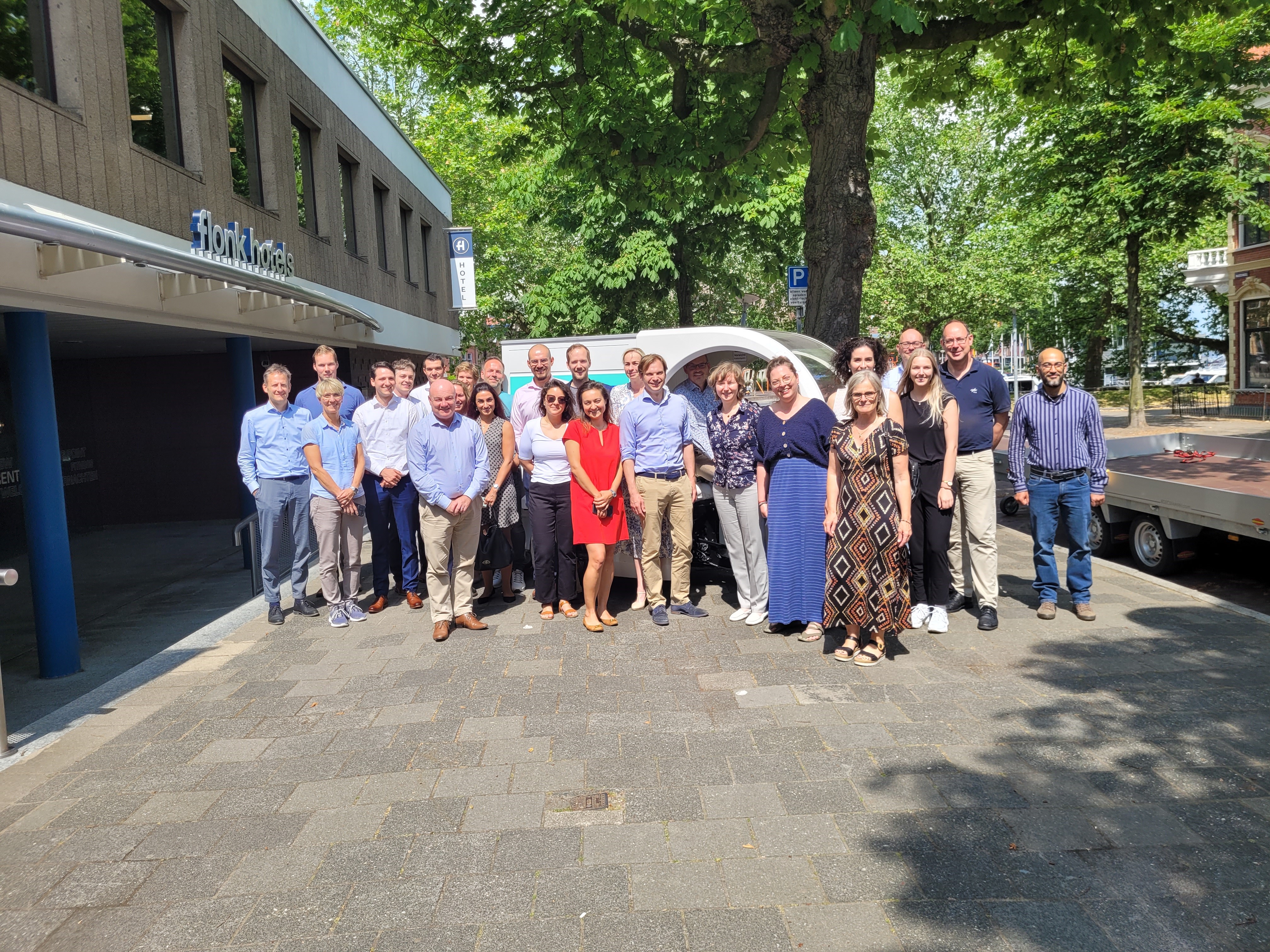Project Linking Hydrogen Power Potentials in the North Sea Region kicks off

All project partners from the North Sea region, including the University of Groningen (UG), met last week for the official kick-off of the project Linking Hydrogen Power Potential (LIHYP). The EU funds the project within the framework of the Interreg 6B North Sea programme. In this project, Professor of Energy Logistics Evrim Ursavas represents the University of Groningen.
LIHYP brings hydrogen demand-supply and stakeholders together and raises potential for future aligned collaboration. The project initiates opportunities to accelerate market introduction of hydrogen applications, leading to regional hydrogen value chains connected in the North Sea Region. The project will realize different pilots for the use of hydrogen such as hydrogen cargo bikes, hydrogen driven freight trains, hydrogen bus stations and living labs in the Netherlands, Belgium, Denmark, France and Germany. To link relevant stakeholders and create a solid database for demand, production and supply of hydrogen, a North Sea Region hydrogen platform marketplace will be set up and kept running until 2030. Different roadmaps for business modelling will support entrepreneurs, investors and public authorities in their uptake of hydrogen in the North Sea Region. Together all partners will take first steps to enable cross-border system integration for hydrogen infrastructures, harmonization and standardization.
International and interdisciplinary collaboration
Ingrid Klinge, (Lead partner New Energy Coalition and project coordinator of LIHYP): ‘International collaborations are the only way forward for the energy transition, which has become more urgent than ever before. Aligning willpower, knowledge and practices through the LIHYP project will establish the necessary tools that will effectively contribute to a sustainable, secure and autonomous energy future. European cooperation at its best!’
Ursavas (professor at UG’s Faculty of Economics and Business): “Through the cultivation of advanced research, the promotion of interdisciplinary collaboration, and the nurturing of innovative minds, the University of Groningen empowers a transformative path towards a sustainable future propelled by hydrogen. With the LIHYP project, we aim to link the undiscovered potentials of hydrogen power in the North Sea region, establishing it as an energy hub and setting a guiding example for other regions to follow.”
Questions? Please contact Evrim Ursavas.
The project consortium consists of the following companies and institutions:

Belgium: WaterstofNet, Urban Waterway Logistics, P&E Lowlands
Denmark: Hydrogen Valley/Cemtec Fonden, Eurowind Energy
France: Centre de Conseil et d’Innovation en Logistique, Institut du Droit International des Transports, Communautaire Urbaine du Havre
Germany: Oldenburger Energiecluster OLEC e.V., Deutsches Zentrum für Luft- und Raumfahrt, Energy Hub Emsland Entwicklungsgesellschaft mbH, Carl-von-Ossietzky Universität Oldenburg, Bremer Mineralölhandel GmbH, Bentheimer Eisenbahn, atene KOM GmbH
Netherlands: Stichting New Energy Coalition (Lead Partner), Kiwa Technology B.V., Provincie Drenthe, Groningen Airport Eelde, the University of Groningen
| Last modified: | 27 June 2023 12.13 p.m. |
More news
-
25 April 2024
Lineke Sneller appointed as Professor of Practice of Digitalization & AI in Accounting and Auditing
The Faculty of Economics and Business (FEB) is pleased to announce that as of 1 May, professor Lineke Sneller will be appointed as Professor Practice of Digitalization & AI in Accounting and Auditing. The chair is situated within the department of...
-
25 April 2024
Jenny van Doorn and co-authors receive 2024 Weitz-Winer-O’Dell Award
Jenny van Doorn and co-authors Martin Mende, Maura L. Scott (both Florida State University), Dhruv Grewal (Babson College) and Ilana Shanks (Stony Brook University) have won the 2024 Weitz-Winer-O’Dell Award. They received the award for their paper...
-
19 April 2024
New thesis prize for master's students of Economics and Business
How can we encourage economics and business students to deal with important societal challenges in their master's thesis? The 14 Dutch faculties of economics and business, united in the Council of Deans in Economics and Business (DEB), have set up...
